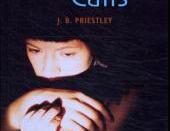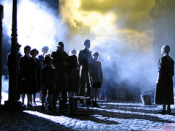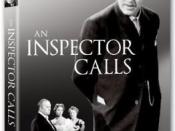Great literature is that which relates to human experience. "An Inspector Calls" and
Brave New World accomplish this in how they portray roles in gender. Since the
beginning of time gender roles have been conditioned into the lives of humans. In Brave
New World, society is primarily a male dominated environment. The most significant
world leaders are all male, and those who are female, unfortunately, are not given any
authority to overrule decisions. An Inspector Calls has a similarly structured society, the
males are the clergymen and farmers, and the women are the "homemakers." Brave
New World and An Inspector Calls share many similarities in views of gender roles. Both
societies are evidently conditioned, to accept tradition in which women are deprived of
individuality and opportunity. Huxley portrays this through his "brave new caste system"
in which females are restricted at a mediocre class.
In "Brave New World" gender roles, or sexism, is quite evident.
Huxley points this
out to the reader blatantly as he characterizes all world controllers as white males.
Females are limited to progression in the caste system, as the highest class that females
appear to be in is the beta class. "That is the secret of happiness and virtue-liking what
you've got to do. All conditioning aims at that: making people like their un-escapable
social destiny." Although this quotation by the Director in Brave New World applies
specifically to caste this dramatically reflects gender roles in the society as well. The
Director is saying that no citizen can escape his or her destiny; the female destiny
however is more objectable. Gender role is applied to this quotation because the Director
is stating that women must accept and be content with their social status. Similarly,
familial relations in Brave New World demean women...


